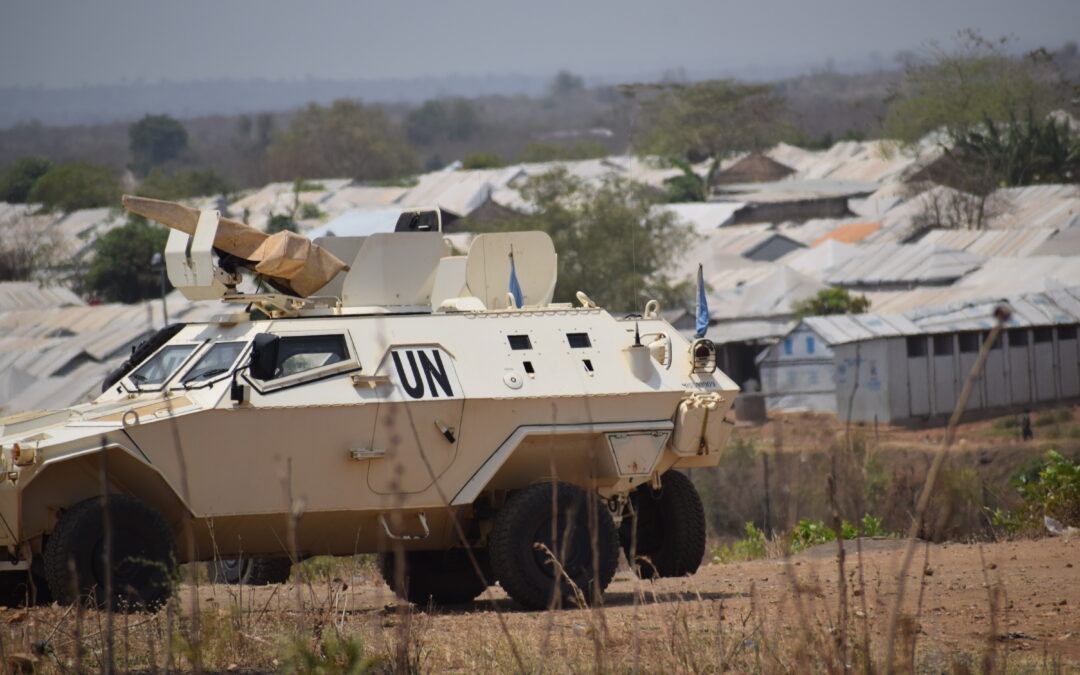As global citizens with a moral responsibility to prevent and respond to atrocities, it can often feel as though our individual actions do not make an impact, and that the issues are so complex or partisan that we are not able to meaningfully engage. However, there has never been a better time for individuals to make an outsized impact on world events. Telecommunications technologies allow us to gather and share information faster than ever before, and online platforms make coordinating efforts far easier.
Here at the Sentinel Project, we have compiled some ways that you can use technology and online platforms to raise awareness, mobilize action, and provide assistance to those affected by atrocities.
Educate yourselves and others. One of the first steps to prevent atrocities is to learn about their causes, consequences, and warning signs. Understand that any information source may have inherent bias; however, reputable sources do not present easy and one-sided answers. Educational institutions such as universities and colleges, non-governmental organizations, and international organizations such as the United Nations are excellent resources. You can also share reliable information and analysis on social media, blogs, forums, and other online spaces to inform and engage your networks and communities. By educating yourself and sharing that knowledge with others, you increase the number of people aware of the problem and are willing to act.
Donate or fundraise for impact-oriented humanitarian organizations. Many people affected by atrocities need urgent humanitarian assistance, such as food, water, shelter, health care, protection, and vital information. You can use online platforms such as websites, apps, or social media to donate or fundraise for reputable organizations that provide humanitarian aid to the victims and their communities. You can also spread the word about their work and needs to encourage others to contribute. Financial support is one of the most effective ways to help because you support organizations that are already implementing humanitarian response efforts directly where they are needed most. If you would like to support the Sentinel Project’s atrocity prevention work, you can do so by donating here.
Volunteer or offer skills. Another way to help those affected by atrocities is to volunteer or offer your skills to organizations that work on conflict prevention, response, or recovery. You can search for organizations by field or purpose to find opportunities to volunteer or offer skills remotely or locally. For example, you can help with research, translation, communication, education, counseling, or technical support. By volunteering with organizations, you allow them to spend more time and resources focusing on the core of atrocity prevention and humanitarian support. The Sentinel Project is always looking for volunteers to work with us to create a world without atrocities.
Advocate for conflict prevention and accountability. Another way to prevent atrocities is to pressure governments and international organizations to take action to prevent, stop, or punish perpetrators of violence. You can use online tools such as petitions, campaigns, letters, emails, and phone calls to voice your concerns and demands to your representatives and leaders. You can also join or support online movements and coalitions that advocate for human rights, peace, and justice. The value in advocacy is that it signals to government and organizations – who have intervening power – that there is a critical mass of support for action. The build up of a critical mass might make them feel less unsure about the correct path, or alternatively, they will be aware that they will have to answer for not implementing meaningful actions.
Express solidarity and empathy. Finally, one of the most underappreciated ways to prevent atrocities is to express solidarity and empathy with those who have experienced them. You can use online platforms such as social media, blogs, forums, or podcasts to send messages of support, compassion, and hope to the victims and their communities. You can also listen to their stories and experiences, and acknowledge their dignity and resilience. Many people are dismissive of these types of actions as empty, feel-good gestures, but they miss the fact that caring and empathy are at the root of so many formative human experiences. It is not always immediately apparent, but empathizing, understanding, and connecting with other human beings can change a life course and influence the actions and decisions of others.
These are some of the ways that you can use technology and online platforms to prevent atrocities. By doing so, you can make a difference in the lives of millions of people who face the threat or reality of atrocities.

